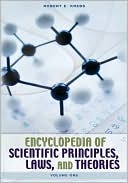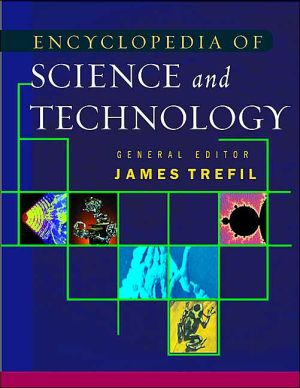Encyclopedia of Scientific Principles, Laws, and Theories
Search in google:
What is a scientific theory? How is it different from a law or a principle? And what practical use is it? Science students, especially those new to studying the sciences, ask these questions everyday about these essential parts of a science education. To support these students, the Encyclopedia of Scientific Principles, Laws, and Principles is designed to be an easy-to-understand, accessible, and accurate description of the most famous scientific concepts, principles, laws, and theories that are known in the areas of astronomy, biology, chemistry, geology, mathematics, medicine, meteorology, and physics. The encyclopedia contributes to the scientific literacy of students and the general public by providing them with a comprehensive, but not overwhelming source of those scientific concepts, principles, laws and theories that impact every facet of their daily lives.The Encyclopedia of Scientific Principles, Laws, and Theories includes several hundred entries. For ease of use, entries are arranged alphabetically by the names of the men or women who are best-known for their discovery or development or after whom the particular scientific law or theory is named. Entries include a short biography of the main discoverers, as well as any information that was of particular relevance in the evolution of the scientific topic. The encyclopedia includes sidebars and examples of the usefulness of the theories, principles, and laws in everyday life, demonstrating that understanding these concepts have practical use. Each entry also includes resources for further research, and the encyclopedia includes a general bibliography of particularly useful primaryand secondary source materials. School Library Journal Gr 10 Up These approximately 600 entries paraphrase the subjects in an accessible way and provide biographical information about the relevant scientists. The preface and introduction outline the differences among scientific laws, principles, theories, hypotheses, and concepts, and also include a short discussion of what science is and what it is not. While the entries, arranged under each scientist's name, are complete for reports or basic knowledge, some are accompanied by figures and tables, or by sidebars that contain a variety of stories, background, and other explanations that make the books suitable for browsing. Appendixes include a list of scientists by discipline and lists of Nobel Prize winners in physics, chemistry, and medicine. This encyclopedia will interest motivated students who are curious about why the Earth and universe work as they do.-Ann Brownson, Eastern Illinois University
VOLUME 1List of EntriesPrefaceDefinitionsThe Entries: A to KVOLUME 2:The Entries: L to ZGlossaryAppendix A: Alphabetical Listing of Entries by Scientific DisciplineAppendix B: Nobel Laureates in Chemistry (1901-2007)Appendix C: Nobel Laureates in Physics (1901-2007)Appendix D: Nobel Laureates in Physiology or Medicine (1901-2007)BibliographyIndex








